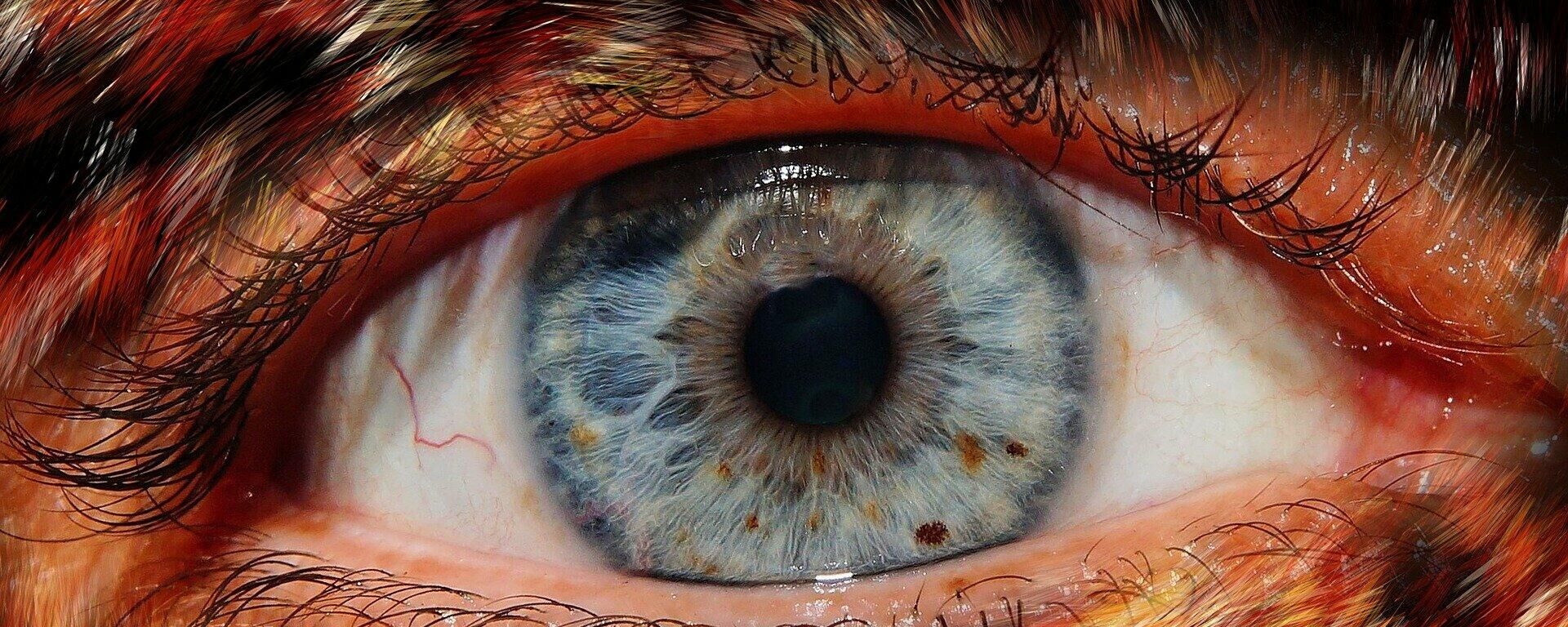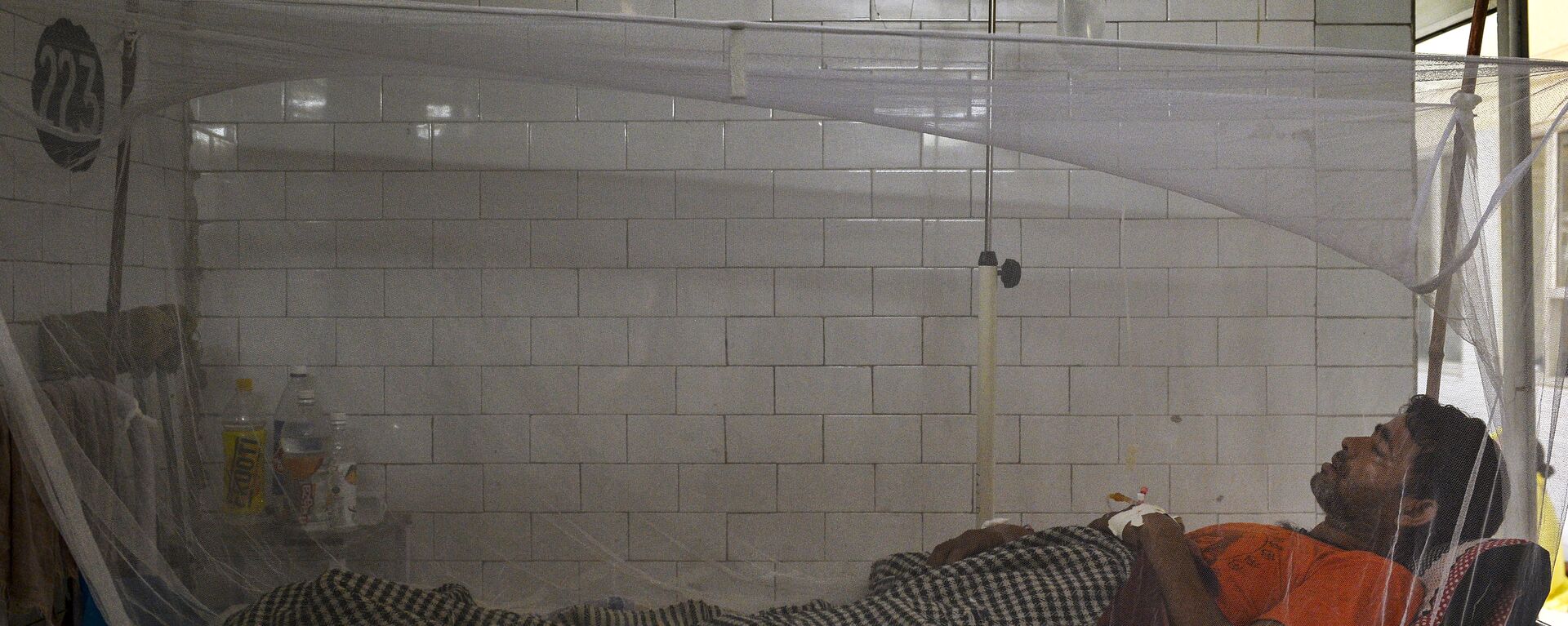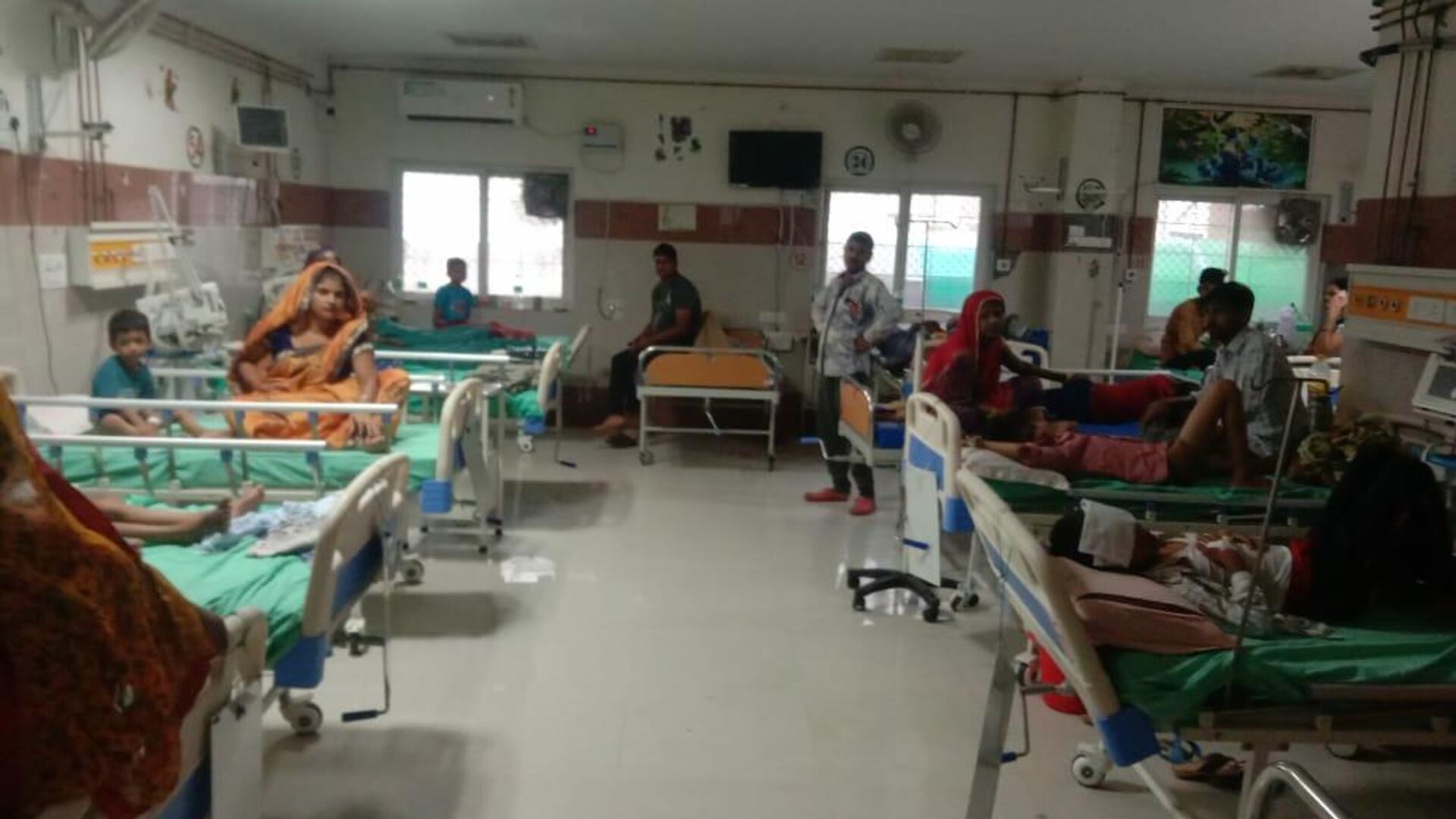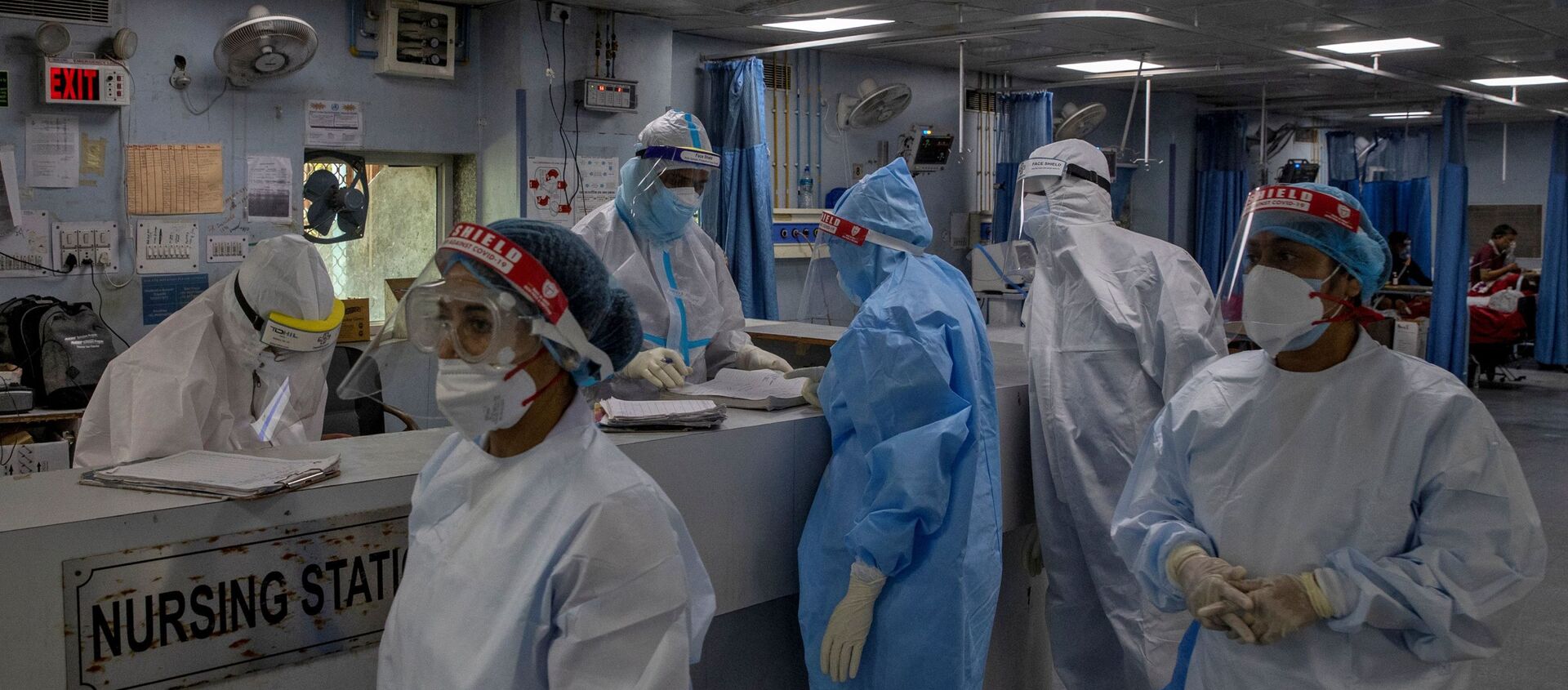https://sputnikglobe.com/20211119/denv-2-serotype-responsible-for-worsening-dengue-outbreak-across-india-say-doctors-1090857223.html
DENV-2 Serotype Responsible for Worsening Dengue Outbreak Across India, Say Doctors
DENV-2 Serotype Responsible for Worsening Dengue Outbreak Across India, Say Doctors
Sputnik International
Several health experts have maintained that the cases of dengue fever in Delhi may start declining after mid-November. Some experts have highlighted that... 19.11.2021, Sputnik International
2021-11-19T17:13+0000
2021-11-19T17:13+0000
2021-11-19T18:42+0000
new delhi
world health organization (who)
maharashtra
dengue fever
dengue
healthcare
aedes aegypti mosquitoes
https://cdn1.img.sputnikglobe.com/img/07e5/09/10/1089131034_0:97:1040:682_1920x0_80_0_0_15979b4518f7eb394657fb2273e46fc8.jpg
As COVID-19 cases are declining, India's national capital, as well as other regions of the country, are reeling under the menace of the dengue virus. The surge in vector-borne diseases such as dengue has led to panic and concerns among people as well as doctors across the country. According to the latest civic body report on vector-borne diseases, Delhi has exceeded 5,200 cases, making it the worst dengue outbreak in the national capital since 2015.Several doctors have suggested that the DENV-2 serotype of the virus could be responsible for the increasing cases of vector-borne diseases in Delhi - and other parts of the country - rather than transmission by female mosquitoes mainly of the Aedes aegypti species and sometimes Aedes albopictus. These species of mosquitos are also responsible for other vector-borne diseases such as chikungunya, yellow fever, and Zika viruses. According to the World Health Organisation (WHO), the dengue virus (DENV) has four serotypes which means that a person could get infected four times. Although most of the DENV infections are mild, sometimes it can cause acute flu-like illness which develops into a potentially lethal complication, called severe dengue. Out of the four serotypes - DENV-1, DENV-2, DENV-3, and DENV-4 - the DENV-2 serotype can cause more damage than the others. It often leads to severe symptoms and even death in some cases. According to the doctors, the incubation period of this serotype is about four to 10 days, and during this period, the virus infestation remains high. In some cases, DENV-2 has been seen as the cause of organ failure. Dr Kamath also highlighted that infants around the age of 6 to 12 months are more susceptible to DHF/DSS and the risk of this complication reduces significantly beyond the age of 11 years.Although the Dengue outbreak occurs annually, the crisis is severe this year especially in Delhi, Punjab, and several other states. As previously reported by Sputnik, the number of dengue cases is extremely high among children. Doctors have stressed that the transition from mild to severe infection and the rate of hospitalisation are also high this year. Dr Gilada stressed that using mosquito nets at home at dusk and dawn and removing stagnant water, especially under pots and plants is extremely important. "There is also a need to highlight that even though there are more severe cases than usual, severe dengue is still uncommon, less than 1 percent of the cases are seen in total," she added. Earlier this month, a molecular study of blood samples from dengue-infected patients at the Indian Council of Medical Research-National Institute of Virology (ICMR-NIV) has confirmed that "dengue virus 2 (DENV-2) is the predominantly circulating strain or serotype in the Indian state Maharashtra this year". The scientists also revealed that the dengue crisis in other Indian states and union territories such as Andhra Pradesh, Karnataka, Goa, Delhi, Uttar Pradesh, and Tamil Nadu is "predominantly" influenced by the DENV-2 serotype. Amid the rising cases across the country, the Indian government sent teams to nine states and Union Territories (UTs) to manage the outbreak of dengue cases earlier this month. Indian states and UTs — Haryana, Punjab, Kerala, Rajasthan, Tamil Nadu, Uttar Pradesh, Uttarakhand, Delhi, Jammu and Kashmir — have reported a significant rise in dengue cases. Up to October this year, 123,106 dengue cases were reported by the states and UTs with 90 deaths, according to the National Vector-Borne Disease Control Programme (NVBDCP) data. Last year, the country had seen more than 44,000 cases of dengue and 56 deaths because of the disease.
https://sputnikglobe.com/20200801/india-needs-immediate-plan-to-avoid-confusing-covid-19-and-dengue-patients---virologist-1080021995.html
https://sputnikglobe.com/20211113/black-fungus-indian-man-partially-loses-vision-in-rare-case-of-post-dengue-mucormycosis-1090711013.html
https://sputnikglobe.com/20211101/indian-health-minister-reviews-dengue-crisis-in-delhi-as-cases-surge-1090390944.html
new delhi
maharashtra
Sputnik International
feedback@sputniknews.com
+74956456601
MIA „Rosiya Segodnya“
2021
Sushmita Panda
https://cdn1.img.sputnikglobe.com/img/07e5/05/12/1082926186_0:0:2048:2048_100x100_80_0_0_4474d0d7e27a36878eb8727832be74b4.jpg
Sushmita Panda
https://cdn1.img.sputnikglobe.com/img/07e5/05/12/1082926186_0:0:2048:2048_100x100_80_0_0_4474d0d7e27a36878eb8727832be74b4.jpg
News
en_EN
Sputnik International
feedback@sputniknews.com
+74956456601
MIA „Rosiya Segodnya“
Sputnik International
feedback@sputniknews.com
+74956456601
MIA „Rosiya Segodnya“
Sushmita Panda
https://cdn1.img.sputnikglobe.com/img/07e5/05/12/1082926186_0:0:2048:2048_100x100_80_0_0_4474d0d7e27a36878eb8727832be74b4.jpg
new delhi, world health organization (who), maharashtra, dengue fever, dengue, healthcare, aedes aegypti mosquitoes
new delhi, world health organization (who), maharashtra, dengue fever, dengue, healthcare, aedes aegypti mosquitoes
DENV-2 Serotype Responsible for Worsening Dengue Outbreak Across India, Say Doctors
17:13 GMT 19.11.2021 (Updated: 18:42 GMT 19.11.2021) Several health experts have maintained that the cases of dengue fever in Delhi may start declining after mid-November. Some experts have highlighted that because of the cyclical pattern of the disease, an exponential surge in cases is witnessed every three to four years.
As COVID-19 cases are declining, India's national capital, as well as other regions of the country, are reeling under the menace of the dengue virus. The surge in vector-borne diseases such as dengue has led to panic and concerns among people as well as doctors across the country. According to the latest civic body report on vector-borne diseases,
Delhi has exceeded 5,200 cases, making it the worst dengue outbreak in the national capital since 2015.
Several doctors have suggested that the DENV-2 serotype of the virus could be responsible for the increasing cases of vector-borne diseases in Delhi - and other parts of the country - rather than transmission by female mosquitoes mainly of the Aedes aegypti species and sometimes Aedes albopictus. These species of mosquitos are also responsible for other vector-borne diseases such as chikungunya, yellow fever, and Zika viruses.
According to the World Health Organisation (WHO), the dengue virus (DENV) has four serotypes which means that a person could get infected four times. Although most of the DENV infections are mild, sometimes it can cause acute flu-like illness which develops into a potentially lethal complication, called severe dengue.
Out of the four serotypes - DENV-1, DENV-2, DENV-3, and DENV-4 - the DENV-2 serotype can cause more damage than the others. It often leads to severe symptoms and even death in some cases.
According to the doctors, the incubation period of this serotype is about four to 10 days, and during this period, the virus infestation remains high. In some cases, DENV-2 has been seen as the cause of organ failure.
"The risk of Dengue haemorrhagic fever and dengue shock syndrome (DHF/DSS) is said to be more with DENV2, though it can occur with any of the four DENV types. The risk of DHF/DSS is also enhanced with the incidences of secondary infection. Antibodies persist in the body after primary dengue infection and when the body encounters dengue infection for the second time, the presence of the antibodies paradoxically enhances the severity of the infection," Dr Siri Kamath, consultant physician at BGS Gleneagles Global Hospital in Bengaluru, told Sputnik.
Dr Kamath also highlighted that infants around the age of 6 to 12 months are more susceptible to DHF/DSS and the risk of this complication reduces significantly beyond the age of 11 years.
Although the Dengue outbreak occurs annually, the crisis is severe this year especially in Delhi, Punjab, and several other states. As previously reported by Sputnik, the number of dengue
cases is extremely high among children. Doctors have stressed that the transition from mild to severe infection and the rate of hospitalisation are also high this year.
"Now every year the predominant serotype varies and this year it's serotype 2. Even among serotypes, there are different variants and certain variants can have more serious diseases than others. This year, unfortunately, the variant within serotype 2 is causing severe infections both in children and in adults," Dr Trupti Gilada, consultant physician in Infectious Disease at Masina Hospital in Mumbai, told Sputnik.
Dr Gilada stressed that using mosquito nets at home at dusk and dawn and removing stagnant water, especially under pots and plants is extremely important. "There is also a need to highlight that even though there are more severe cases than usual, severe dengue is still uncommon, less than 1 percent of the cases are seen in total," she added.

13 November 2021, 14:55 GMT
Earlier this month, a molecular study of blood samples from dengue-infected patients at the Indian Council of Medical Research-National Institute of Virology (ICMR-NIV) has confirmed that "dengue virus 2 (DENV-2) is the predominantly circulating strain or serotype in the Indian state Maharashtra this year".
The scientists also revealed that the dengue crisis in other Indian states and union territories such as Andhra Pradesh, Karnataka, Goa, Delhi, Uttar Pradesh, and Tamil Nadu is "predominantly" influenced by the DENV-2 serotype.
Amid the rising cases across the country, the Indian government sent teams to nine states and Union Territories (UTs) to manage the outbreak of dengue cases earlier this month. Indian states and UTs — Haryana, Punjab, Kerala, Rajasthan, Tamil Nadu, Uttar Pradesh, Uttarakhand, Delhi, Jammu and Kashmir — have reported a significant rise in dengue cases.

1 November 2021, 15:44 GMT
Up to October this year, 123,106 dengue cases were reported by the states and UTs with 90 deaths, according to the
National Vector-Borne Disease Control Programme (NVBDCP) data. Last year, the country had seen more than 44,000 cases of dengue and 56 deaths because of the disease.







